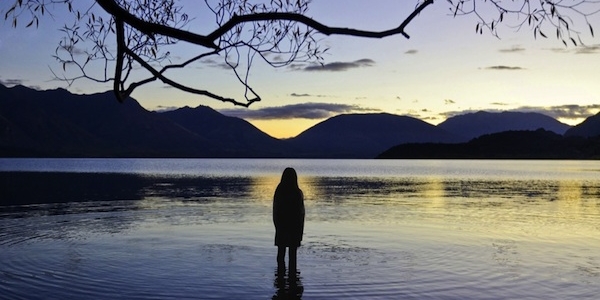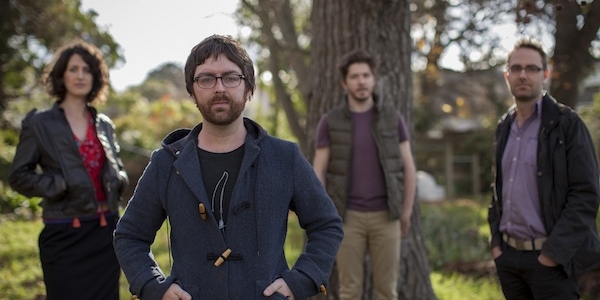Unlike seasonal serial television dramas, Top Of The Lake is definitively self-contained within its six episodes. The result is a cohesive, satisfying whole, the result of Academy Award-winning director Jane Campion reuniting with writer Gerard Lee – marking the first time the two have worked together in 17 years. “It’s Jane’s original inspiration, for most of it anyway,” Lee says on the project’s genesis. “She got the idea while walking by the lake that features in the show. She has a hut just near there. She had spare mind space I guess, and a lot of ideas tumbled into her head at the same moment, as they tend to do. Then you spend the next three years feeling them out. That’s sort of how it happened. Her daughter at that stage was 12, so I think it had to do with that mothers’ fear of what could happen to your daughter.”
Despite the long break in their writing partnership, the team-up proved to be as fruitful as ever. “We were at film school for four and a half years. We practiced dialogue a lot. We made a few shorts together, then wrote Sweetie, her first feature film together. So we’ve had years of occupying a similar imaginative space. When she offered me the chance to work on [Top Of The Lake I thought we could enter that space and see where the characters took us. It was just a few years of hanging around in her office, pretending to be different people that we thought of and imagining what their emotional life would be like. Then we’d role play the dialogue. A lot of the guys in there are from an island where I used to live, Russell Island near Brisbane. A sort of island of broken men, single dads, criminals, ex-cons, drug addicts. I found it to be an interesting place to live and I got to know a few of those guys well. When I talked to Jane about them she seemed to be pretty interested. That’s where some of the male characters come from, she brought the women’s camp in,” Lee states, referencing the dichotomy of matriarchy and patriarchy present within the text.
“What do I admire about Jane Campion? We’re pretty competitive, mate,” Lee laughs while echoing my question. “I’m bitter and resentful that she’s a lot more famous than me. Of course I do admire her, it’s like sibling rivalry now. I’ve got a lot of respect and admiration for her, but it’s almost beyond my critical faculty. It’s too close to me, I can’t step back from it. When I try and think about it, it’s that she can zero in on the genuine human state. I don’t know how, but she can. She can see the bare conditions as they are for somebody. I like to think that I can do it, but I don’t think that I can. Not like her, anyway. I think it’s a New Zealand thing, it comes from being in the cold. I think what she admires about my world, she says I’m good at writing dialogue. But that’s just an expression of the place I can go with a character. I think she likes the humour I can bring along, this bizarreness, just another point of view. But they’re both points of view we can get into within the same world, and we can’t really do it by ourselves. When we’re writing on our own it’s not the same. It’s like a chemical reaction that goes on, and we’re not always happy about it either.”
The past few decades have seen a prevalence of subversive takes on the detective form. Top Of The Lake’s adherence to the rules of the genre is, strangely enough, subversive in itself within the context of contemporary narratives. It’s a quality that Lee had to battle for. “That was one of the big struggles. A lot of people think that our story is a subversive detective story. But it’s not, well in most ways it’s not. It’s a very classical, standard one. That’s the side I always take, finding what is the traditional way of telling the story. So we have the crime at the start, the solution at the end, for instance. I was terrified Jane would want to do something where there was no solution at the end. I sketched out the story as it would be traditionally told, like an Edgar Allen Poe story. But I didn’t tell her about it, because I knew as soon as she saw what she’d call a clichéd storyline she’d do her best to destroy it.”
The production and funding for a talent-rich project like Top Of The Lake is indicative television’s current facilitation of creative freedom, achieving a quality that often goes beyond what current cinema offers. “It’s a golden time. It’s like the 1890’s for the English novel,” Lee compares. “There are going to be a lot of big stories come out, and I think it’s only just started.”
BY LACHLAN KANONIUK

